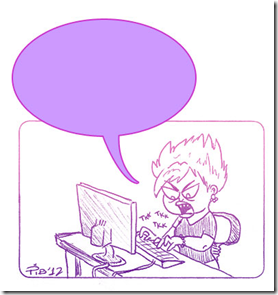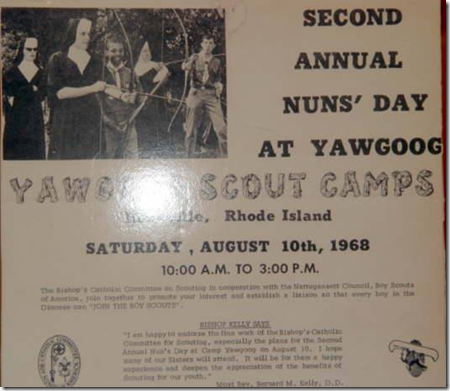Slate’s Matthew J.X. Malady offers any number of reasonable answers to this question, but I think the answer is far simpler:
Writing instruction at the elementary, middle, and high school levels is taught primarily by teachers who are not writers and do not engage in writing on a regular basis.
Most teachers are readers. We read for pleasure. We read novels, nonfiction, magazines, and endless amounts of text on the Internet. We are forced to read the material that we assign to our students in order to evaluate comprehension, lead discussions, and answer questions.
Most teachers are also mathematicians. We add, subtract, multiply, and divide on a daily basis. We work with fractions in the kitchen. We measure at the workbench. We solve the same problems that we ask our students to solve in order to teach, model, and diagnose errors.
Few teachers are writers.
A third grade teacher requires her class to write a fictional narrative that includes a magic key and a hole in a tree.
When was the last time that teacher sat down and wrote a fictional fictional narrative using a pre-assigned plot point?

A middle school teacher assigns his students an argumentative essay on the death penalty. When was the last time that teacher wrote a five paragraph essay on a pre-assigned topic?
A high school teacher requires her students to write a 15 page paper on the differences between Julius Caesar and Macbeth in Shakespeare’s plays. When was the last time that teacher wrote a paper on a pre-assigned topic, using pre-assigned readings, with a strict page limit?
How often does any teacher write anything similar to what he or she assigns students? How often do teachers write for pleasure?
When I conduct workshops on the teaching of writing, the first thing I tell my workshop attendees is that listening to me talk about the teaching of writing is not the best way to become a better teacher of writing. I invite them to flee my workshop immediately. Run away! Find a writing class at a local college, a museum, or in their town’s adult education program. Enroll. Start writing. Start writing every day. Becoming a writer, and learning to become a better writer, is the best (and perhaps the only) way to become a better teacher of writing.
When I assign my students an essay, I also write the essay and share my work with them. When I assign my students a series of open-ended questions, I will always answer at least one of them. When I teach my students about poetry or playwriting or personal narrative, I write alongside them. I invite them to peek over my shoulder and watch what I am doing, like I do to them. I understand the struggles and frustrations of a writer. I understand what is important to a writer. I understand the challenges that an assignment presents. I quickly learn about where I need to focus and redirect my instruction.
The question I get most often from teachers in my workshops is about how to motivate the reluctant writer. It’s always been the most difficult question for me to answer, because I have no specific strategy to recommend. I have no intervention to deploy. No tricks of the trade.
My students are always motivated to write. I do not say this to boast, and I am not exaggerating. In my 16 years as a teacher, I can count the number of truly reluctant writers in my classroom on one hand.
My students want to write because they perceive me as a writer. They see me write every day. I share my work with them. I tell stories about my struggles and successes. Most importantly, I know what a writer needs to write. I know what a writer wants. I know what it takes to motivate yourself when all of the words on the page look like garbage and all you want to do is play a video game or eat a cookie or read something, anything, better than what you are writing.

Instead of writing every day, teachers purchase books filled with prefabricated writing lessons and activities that no actual writer would ever even consider doing. They hang posters about some nonexistent, linear writing process on the wall. They attend workshops and expect that six hours spent in front of a successful teacher of writing will somehow fundamentally change their practice and improve their instruction. When I tell teachers that just 15 minutes a day, every day, is more than enough time to become a writer and begin to understand what their students truly need, they tell me that they don’t have the time.

There are no easy answers. No simple solutions or quick fixes. Writing is complex and emotional. It’s a struggle and a joy. It’s hard. Incredibly hard. If you want to help your students become better writers, become a writer yourself. Not even a good writer. Just a writer.
That’s it. Just start writing.








